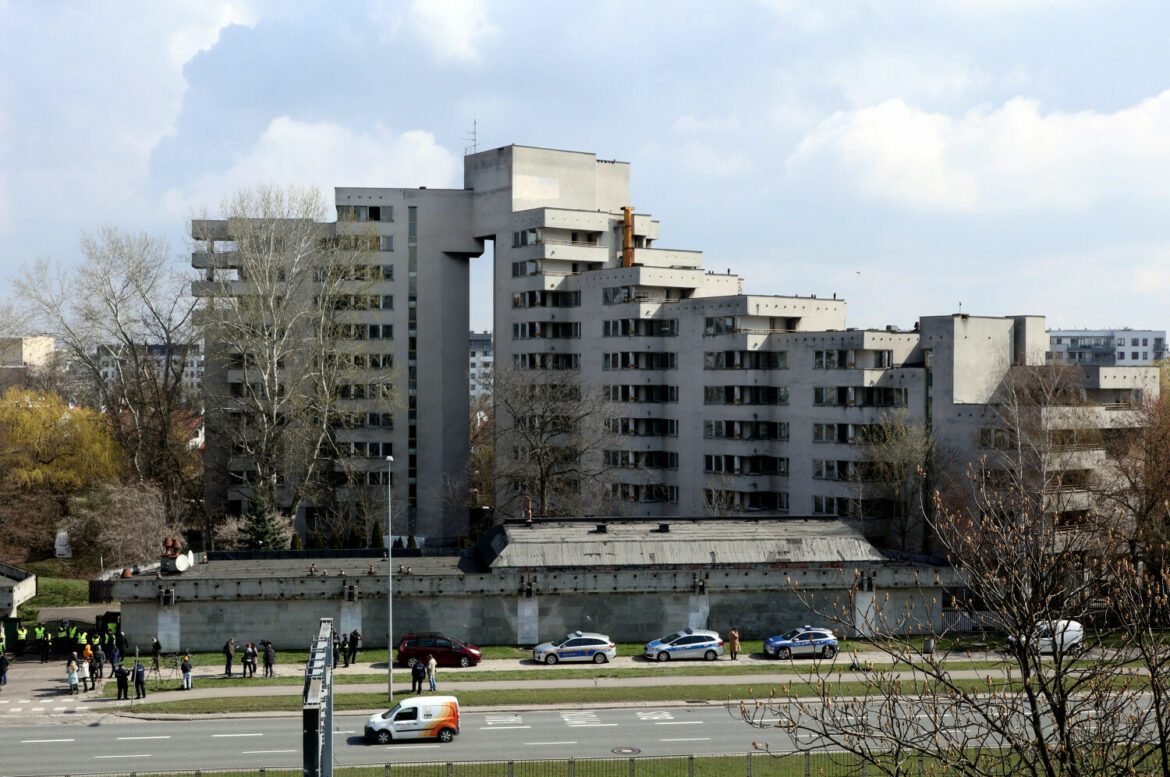The Mayor of Warsaw, Rafał Trzaskowski, announced that the city authorities had taken over real estate belonging earlier to the Russian embassy, the so-called “Szpiegowo” (Spy town). “It’s official: we have regained the property at 100 Sobieskiego Street,” wrote Trzaskowski on Twitter.
The mayor emphasized that each of the rooms was demolished and empty. “It seems that only load-bearing walls are suitable for further use. Even the wiring for the elevators had been cut. We found two strongboxes – both empty”, wrote Trzaskowski. After a thorough renovation, we will offer flats for refugees from Ukraine.
The building at 100 Sobieskiego Street has over 100 apartments, where Soviet embassy workers used to live in the times of the Polish People’s Republic. Many years ago, the building was deserted and requires renovation. Over the years, representatives of the Ministry of Foreign Affairs and the Capital City Hall have made a number of attempts to regulate the legal status of real estate for the benefit of the Russian Federation in Poland and, respectively, in Russia for the benefit of Poland.
The premises at 100 Jana III Sobieskiego Street were built in the mid-70s but after the collapse of the Soviet Union, the buildings were deserted. For years, the Warsaw City Hall tried to recover abandoned buildings from Russia, as well as recover the debt, which in 2016 amounted to over PLN 7 million.
Deputy Minister of Foreign Affairs Marcin Przydacz reminded the public that during the first 20 years after the collapse of USRR no one really wanted to take over this real estate, illegally owned by the Russians.
“In the end, the Polish government together with the Warsaw local government made a decision to turn to court. The judgments in the case of two real estates at Sobieski 100 and Kielecka 45 were delivered and the bailiff can already enforce the sentences”, emphasized the deputy minister.
Arkadiusz Słomczyński





